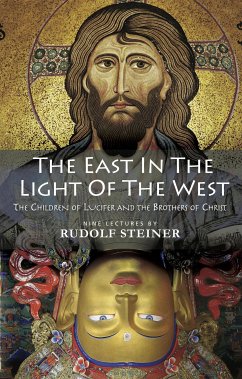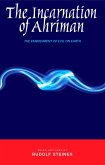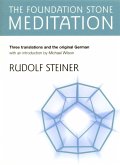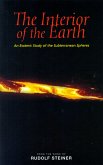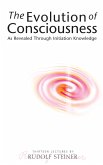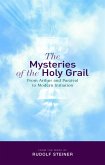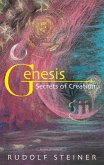'A wonderfully beautiful legend tells us that when Lucifer fell from heaven to earth a precious stone fell from his crown... This precious stone is in a certain respect nothing else than the full power of the "I".'
Seven years after staging Edward Schuré's drama The Children of Lucifer, Rudolf Steiner felt able to talk openly about the complex relationship between the beings of Lucifer and Christ. In an extraordinary series of lectures, Steiner addresses the difficult and often misunderstood subject of Lucifer's role in human development. Speaking within the broader context of ancient and modern - Eastern and Western - spiritual teachings, Steiner clarifies that Lucifer is not the simple caricature of evil that many imagine, but rather plays a pivotal role in human development.
Whilst Rudolf Steiner held a deep respect for Eastern philosophy, he worked consistently from his personal knowledge of the Western - Christian - esoteric tradition. At a time when many of his colleagues revered ancient Eastern texts, Steiner viewed these same documents as representations of an earlier stage of human consciousness; as evidence of the heights that Eastern wisdom had reached, thousands of years before the development of Western science and culture. But Steiner maintains that the ancient truths need to be understood in the context of contemporary knowledge: that the old wisdom of the East has to be seen in the light of the West.
Chapters include: Eternity and Time - Comparison of the Wisdom of East and West - The Nature of the Physical and the Astral Worlds - Evolutionary Stages - The Children of Lucifer and the Brothers of Christ - Lucifer and Christ - The Nature of the Luciferic Influence in History - The Bodhisattvas and the Christ.
Seven years after staging Edward Schuré's drama The Children of Lucifer, Rudolf Steiner felt able to talk openly about the complex relationship between the beings of Lucifer and Christ. In an extraordinary series of lectures, Steiner addresses the difficult and often misunderstood subject of Lucifer's role in human development. Speaking within the broader context of ancient and modern - Eastern and Western - spiritual teachings, Steiner clarifies that Lucifer is not the simple caricature of evil that many imagine, but rather plays a pivotal role in human development.
Whilst Rudolf Steiner held a deep respect for Eastern philosophy, he worked consistently from his personal knowledge of the Western - Christian - esoteric tradition. At a time when many of his colleagues revered ancient Eastern texts, Steiner viewed these same documents as representations of an earlier stage of human consciousness; as evidence of the heights that Eastern wisdom had reached, thousands of years before the development of Western science and culture. But Steiner maintains that the ancient truths need to be understood in the context of contemporary knowledge: that the old wisdom of the East has to be seen in the light of the West.
Chapters include: Eternity and Time - Comparison of the Wisdom of East and West - The Nature of the Physical and the Astral Worlds - Evolutionary Stages - The Children of Lucifer and the Brothers of Christ - Lucifer and Christ - The Nature of the Luciferic Influence in History - The Bodhisattvas and the Christ.
Dieser Download kann aus rechtlichen Gründen nur mit Rechnungsadresse in A, B, BG, CY, CZ, D, DK, EW, E, FIN, F, GR, H, IRL, I, LT, L, LR, M, NL, PL, P, R, S, SLO, SK ausgeliefert werden.

